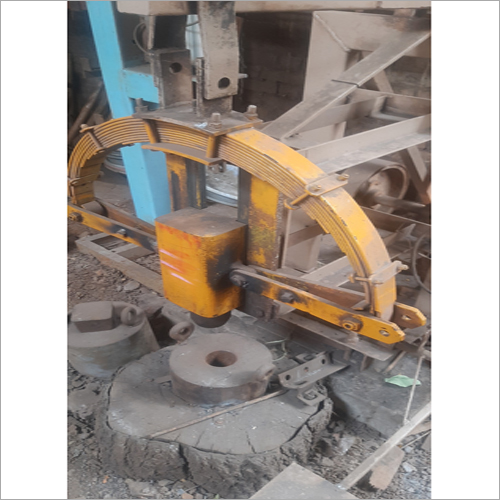
Mechanical Hammer
100000.00 - 300000.00 INR/Unit
Product Details:
- Usage Industrial
- Size As per requirement
- Color Yellow
- Tool Type Mechanical Hammer
- Click to view more
X
Mechanical Hammer Price And Quantity
- 100000.00 - 300000.00 INR/Unit
- 1 Unit
Mechanical Hammer Product Specifications
- Mechanical Hammer
- Industrial
- Yellow
- As per requirement
Mechanical Hammer Trade Information
- Cash Advance (CA)
- 10 Unit Per Month
- 1-7 Days
- All India
Product Description
The mechanical hammer typically consists of a motorized or pneumatic mechanism that generates the striking force, a hammer head or ram, and a controlled mechanism for regulating the impact strength and frequency. It can deliver rapid, repetitive blows, allowing for efficient and precise work on different materials.
FAQs:
Q: What are the main uses of a mechanical hammer?
A: Mechanical hammers are employed for a wide range of tasks across different industries. They are commonly used in metalworking for shaping, bending, and forging metals. In construction, mechanical hammers are utilized for driving nails, stakes, and other fasteners into various materials. They are also used in manufacturing processes for tasks such as riveting, chiseling, and stamping. The power and versatility of mechanical hammers make them valuable tools in tasks requiring high impact force and repetitive strikes.
Q: How does a mechanical hammer work?
A: The specific working mechanism of a mechanical hammer depends on its design and power source. In motorized hammers, an electric motor drives a rotating mechanism that converts rotational energy into linear motion. This motion is then transmitted to a hammer head or ram, which strikes the workpiece with controlled force and speed. Pneumatic hammers, on the other hand, use compressed air or gas to drive a piston, creating the striking force. The piston movement is regulated by a valve system, allowing for precise control over the impact strength and frequency.
Q: What are the advantages of using a mechanical hammer?
A: Mechanical hammers offer several advantages over manual tools or other power tools. Firstly, they deliver high impact force, allowing for faster and more efficient work compared to manual methods. They reduce the physical effort required for tasks such as driving nails or shaping metals, enhancing productivity and reducing worker fatigue. Mechanical hammers also provide better control and precision, as the impact strength and frequency can be adjusted to suit different materials and applications. Additionally, they are suitable for repetitive tasks, ensuring consistent results and reducing the risk of human error.
Q: Are there different types of mechanical hammers?
A: Yes, there are different types of mechanical hammers designed for specific applications. Some common types include air hammers, power hammers, forging hammers, and riveting hammers. Air hammers utilize compressed air or gas for operation and are suitable for heavy-duty tasks. Power hammers can be motorized or operated hydraulically, providing high impact force for shaping and forging metals. Forging hammers are specifically designed for blacksmithing and metalworking applications, while riveting hammers are used for driving rivets into metal structures. The choice of hammer type depends on the intended application and the specific requirements of the task at hand.
Tell us about your requirement

Price:
Quantity
Select Unit
- 50
- 100
- 200
- 250
- 500
- 1000+
Additional detail
Mobile number
Email
 |
MECHSUN INDUSTRIES
All Rights Reserved.(Terms of Use) Developed and Managed by Infocom Network Private Limited. |


